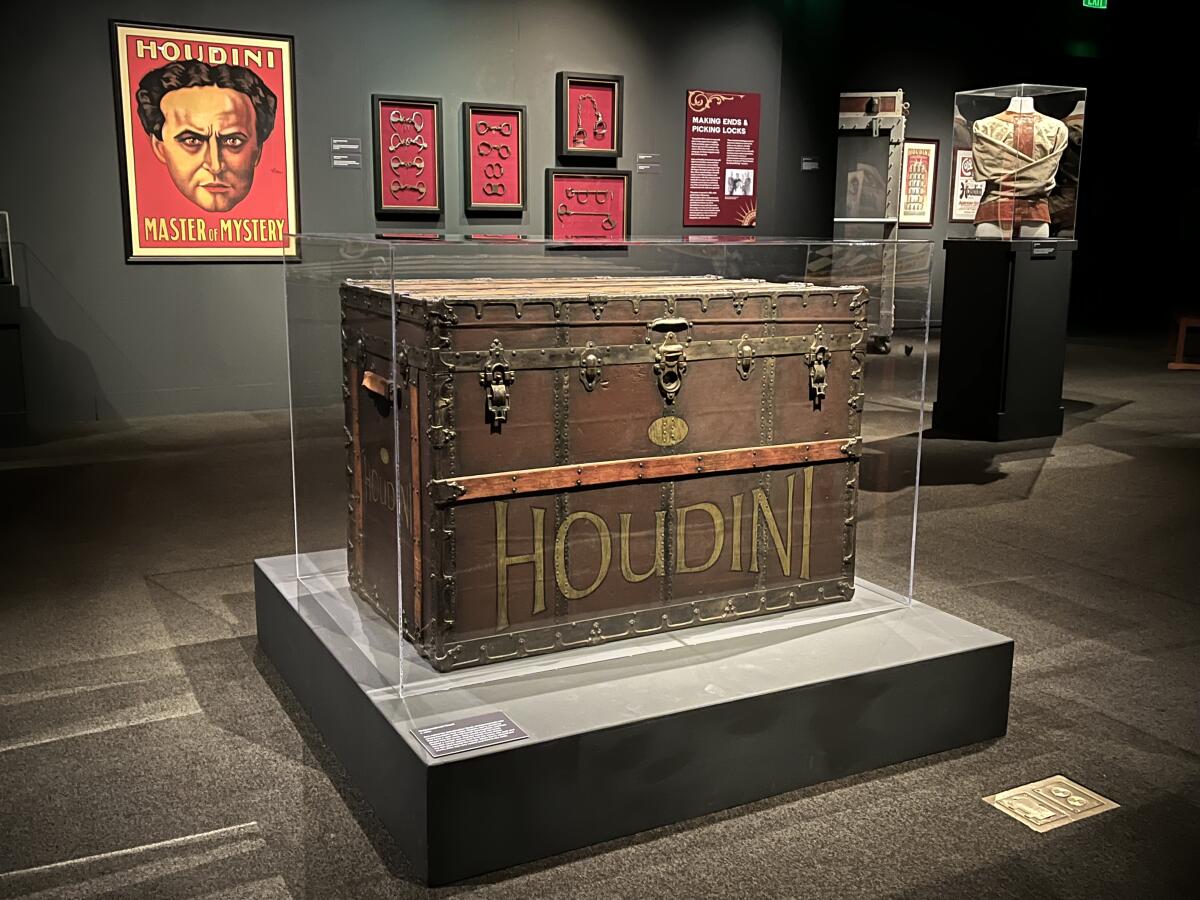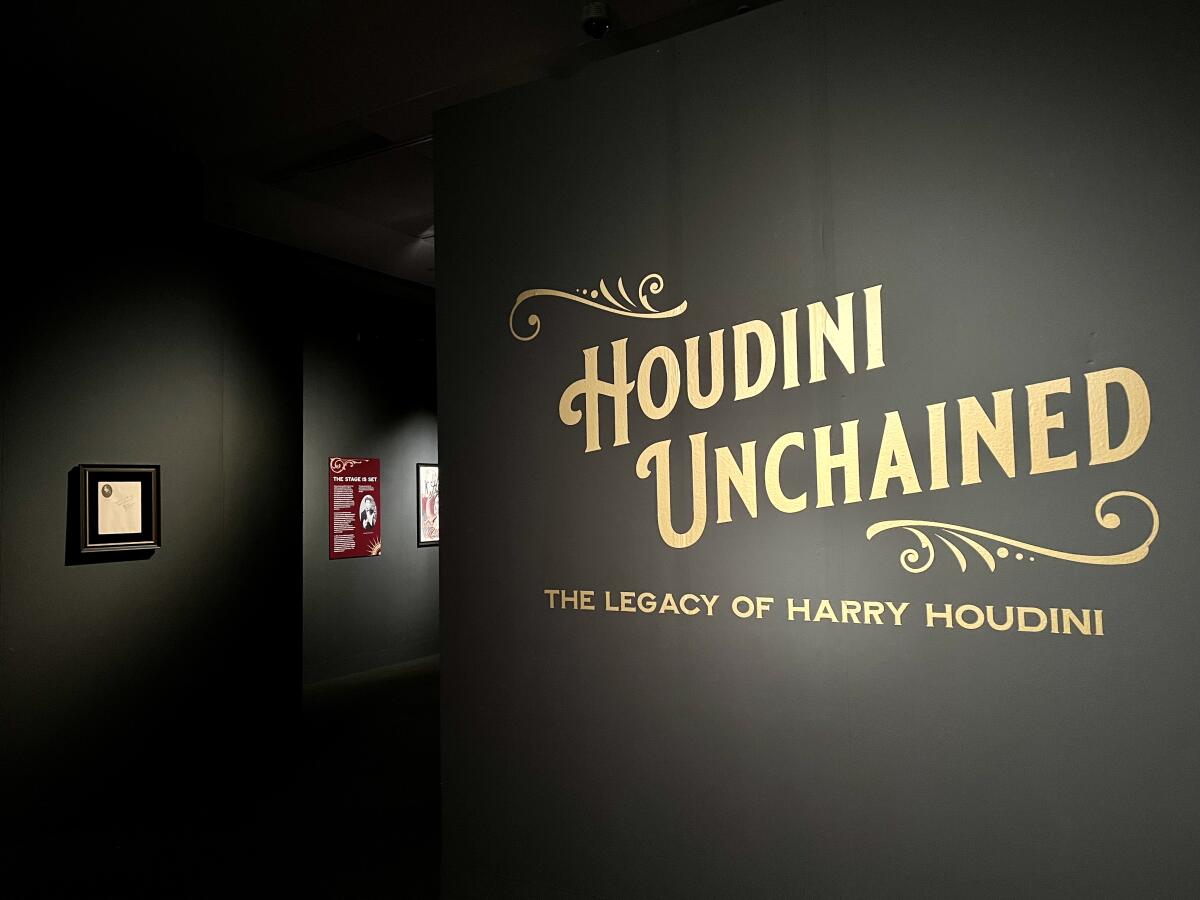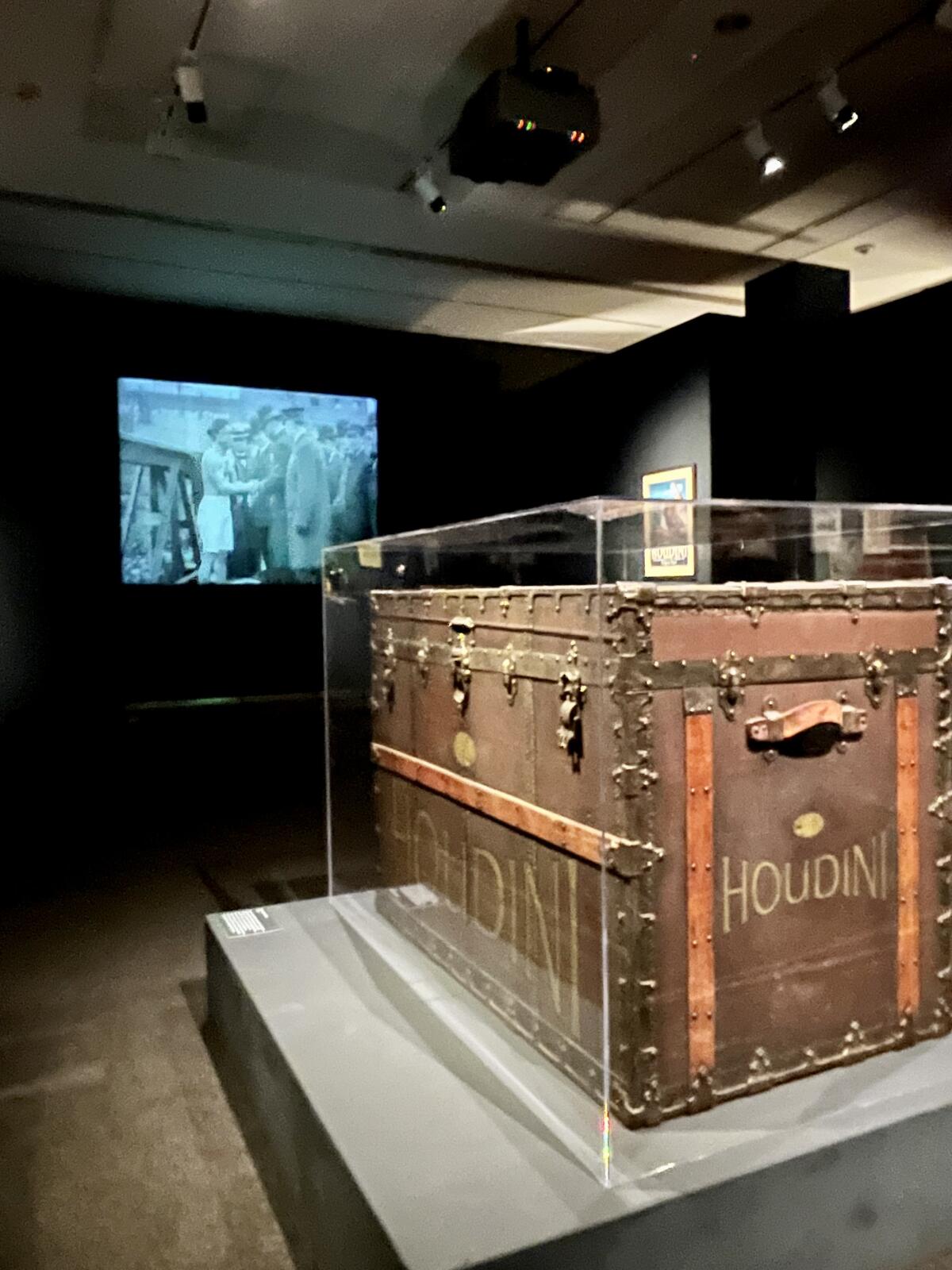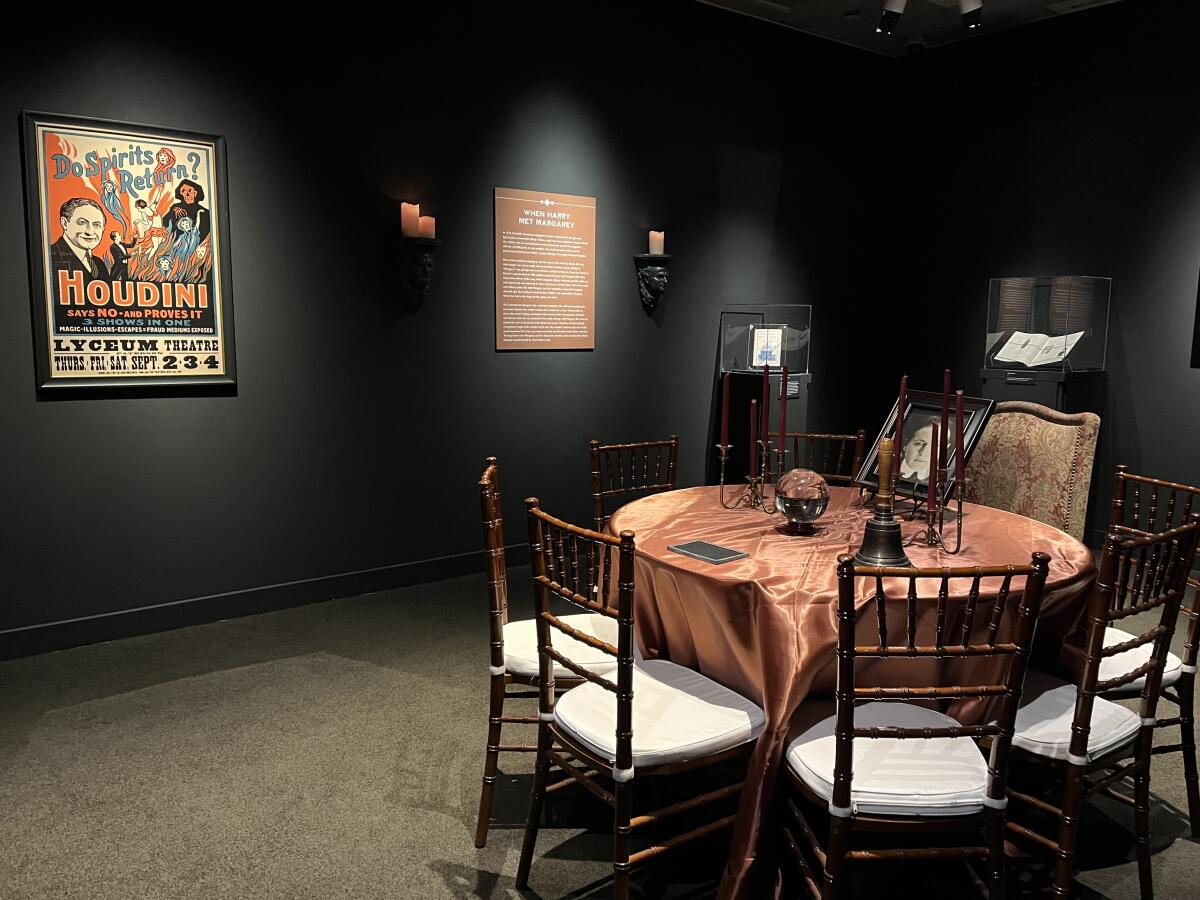Exhibit celebrating the legacy of illusionist Harry Houdini includes a collector’s ‘crown jewel’

- Share via
One of the most well-known stunts of famed illusionist Harry Houdini, remembered for his escape acts, was the milk can escape, first performed in 1908 at the Columbia Theater in St. Louis.
Houdini, born Erik Weisz in Budapest, would climb into a milk can filled with water while others sealed the top with padlocks. A curtain would go up, and when it dropped a few moments later, a soaking wet Houdini would be standing triumphantly next to the milk can.
The milk cans the illusionist used for this act have become among the most coveted for Houdini collectors. “Houdini Unchained: The Legacy of Harry Houdini” at Muzeo Museum and Cultural Center in Anaheim celebrates Houdini and displays one of the four elusive milk cans. (Magician David Copperfield reportedly owns one of the remaining three.)

“’Houdini Unchained: The Legacy of Harry Houdini’ is a collection from one singular collector,” said Kelly Chidester, executive director at Muzeo Museum and Cultural Center. “Everything is owned by Dr. Randall Bell, and everything that he owns has not been on display before.”
Open until Jan. 22, the world-premiere exhibit features first-edition books, personal letters and contracts, handcuffs, stage props and locks along with the famed milk can. It is a collection Bell has gathered since reading a book about Houdini as a young boy turned him into a lifelong fan. Bell began collecting authentic memorabilia in the 1990s, and the milk can is said to have come from the basement of Houdini’s house.
“There is a lot of conspiracy around the authenticity of a lot of Houdini artifacts,” Chidester said.
Theodore “Dash” Hardeen, Houdini’s younger brother, was also a magician and escape artist, and after his brother’s death, he sold many of Houdini’s stage props — and fabricated others.
“After Houdini’s death, Hardeen was selling quite a bit of locks and picks that he claimed were Houdini’s but were fakes,” Chidester said.
All of the artifacts in Bell’s collection have been authenticated by auction houses, including the milk can.
“This is probably the crown jewel for Dr. Bell,” Chidester said.
The show also features a trunk from the 1890s used in one of Houdini’s other famous illusions, called Metamorphosis.

“There are only a couple of trunks that remain that he used for this illusion,” said Chidester. “Just aside from it being used in an illusion, it is beautifully made, and you can see all the joints and the makers’ names on it.”
In Metamorphosis, Houdini’s wife, Bess, would put him into the trunk, also known as the substitution trunk, in a sack with handcuffs and shackles.
“A curtain would go up and come down real fast and Houdini would be standing outside the trunk, free from all the handcuffs and restraints,” said Chidester.
Then Houdini would open the trunk to miraculously reveal Bess, now bound and handcuffed in his place.
Besides stage props, the Muzeo exhibit details the many of facets of Houdini. He was an illusionist and escape artist but also an author, actor, aviator and inventor.
Later in life Houdini became invested in debunking spiritualists like psychics and mediums, and even testified before a congressional subcommittee in 1926 on a bill that would ban the practice of “fortune telling” in the District of Columbia.

Houdini died on Oct. 31 that same year, though he famously had a pact with Bess that the first to die would try to contact the other with a coded message. Each year Bess held a séance on Halloween night on the roof of the Knickerbocker Hotel. Through 10 years of séances, she never heard from her beloved Harry, and she considered the 10th attempt the last. A replica séance table is set up at Muzeo, complete with a bell for museumgoers to make their own attempts to summon the spirit of Houdini.
In sharing his collection, Bell and Muzeo are keeping Houdini’s spirit alive in their own way. On Jan. 22, Bell will be at the museum for the show’s closing and will host a “Meet the Collector” talk at 2 p.m. to give more detail about his artifacts and memorabilia.
“It is nice to have collectors that are willing to share,” said Chidester. “Dr. Bell is collecting and preserving not just for himself but for a greater audience.”
All the latest on Orange County from Orange County.
Get our free TimesOC newsletter.
You may occasionally receive promotional content from the Daily Pilot.




